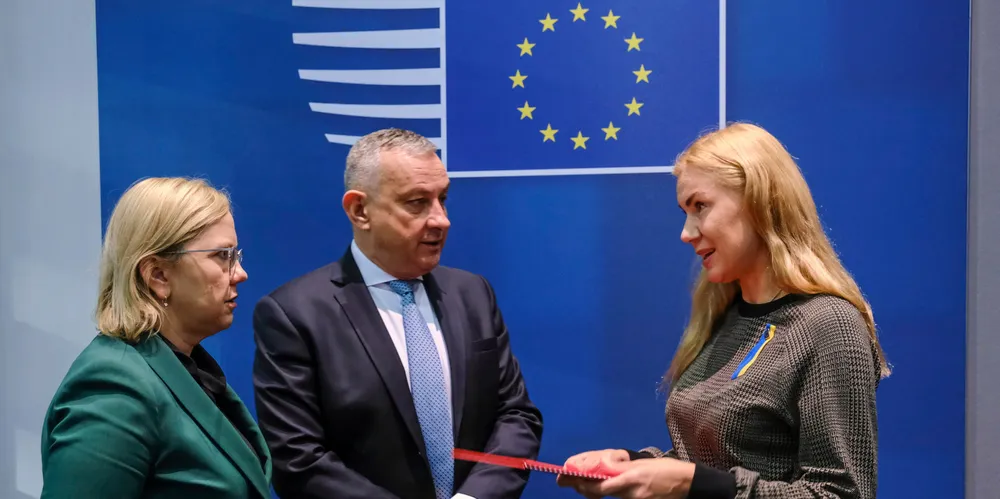Wind and solar sectors warn EU revenue cap will mean 'investors will simply go elsewhere'
Industry flags impact of potential retroactive measures and added taxes on generation in member states as energy ministers meet to discuss energy crisis

The renewables industry has warned that a cap on wind and solar power revenues in EU countries could do more harm than good and prompt investors to seek other shores.
Energy ministers of the 27 EU member states in a second emergency meeting today (Friday) approved a proposal made earlier by the European Commission to cap renewable, nuclear and lignite energy revenues at €180/MWh ($177/MWh). Individual member states were allowed to set higher revenue caps, or use other measures to further limit market revenues, differentiate between technologies, and to apply limits to market revenues of other actors including traders.
"We live in exceptional times and are working in an exceptionally fast, coordinated and solidary manner to form a united front against Russia’s continuous weaponising of energy supplies," said Jozef Síkela, industry minister of the Czech Republic that currently holds the EU presidency.
"The agreement reached today will bring relief to European citizens and companies. Member states will flatten the curve of electricity demand during peak hours, which will have a direct positive effect on prices."
The energy ministers also agreed to an overall reduction target of 10% of gross electricity consumption and a mandatory reduction target of 5% of the electricity consumption in peak hours.
While governments need to help families and businesses to pay soaring energy bills, the emergency regulation as it now stands will put many renewables investments on hold, industry group WindEurope cautioned, especially due to the possibility for national governments to adopt additional taxes on power generation on top of EU-wide measures.
“And these additional measures include taxes on electricity producers’ total revenue, rather than their profits. This will stop renewables investments,” WindEurope said in a comment.
“Investors will simply go elsewhere. To the US for example, where the Inflation Reduction Act has big tax credits for renewables investments.”
German energy and climate minister Robert Habeck when arriving at the energy ministers' meeting said his country approves of the commission's proposals, which also reflect similar measures planned by Berlin.
But he added that the overall volume of energy available must be increased simultaneously.
"I am not entirely satisfied yet about proposals for the build-up of renewable energies. Unfortunately, that so far is not part of the [emergency] proposals," he told doorstepping journalists in Brussels.
"That is an energy amount we need to increase for the future, and we need to get much faster in Europe in planning, permitting, and the expansion of renewable energies."
'Treating the symptoms and not the cause'
Habeck's comment in part mirrored a note by SolarPower Europe, which said Europe risks treating the symptoms of the energy crisis and not the cause, pointing out that renewables are the long-term solution to bring power prices down.
“Solar is available and provides energy price relief from the moment it is connected,” the sector group said.
“Europeans know this and are rushing to install solar PV on their rooftops. What holds them back are administrative and regulatory obstacles that can readily be removed with political will.“
SolarPower Europe called upon the European Commission to apply an emergency package for boosting renewables that includes EU funding for training programmes to lessen the shortage of skilled labour, require member states to identify priority areas for renewables with accelerated permitting procedures, exempt all solar up to 3MW from tendering, exempt on-site solar from construction permits on most buildings, and launch a series of extraordinary tenders for flexible or hybrid renewable projects – ie. solar plus wind plus storage.
Germany’s renewable energy federation (BEE) urged the EU to abstain from retroactive interventions in power markets, asked for any measures to be limited to six months, and to leave sufficient profits for continued investments in an accelerated build-up of renewables.
“The fossil-nuclear energy price crisis is causing immense price jumps and is increasingly burdening households and companies. Renewable energies, on the other hand, have a price-lowering effect on the electricity market,” BEE president Simone Peter said.
“In the event of hasty state market intervention, investment security can be undermined and the further expansion of renewables endangered.”